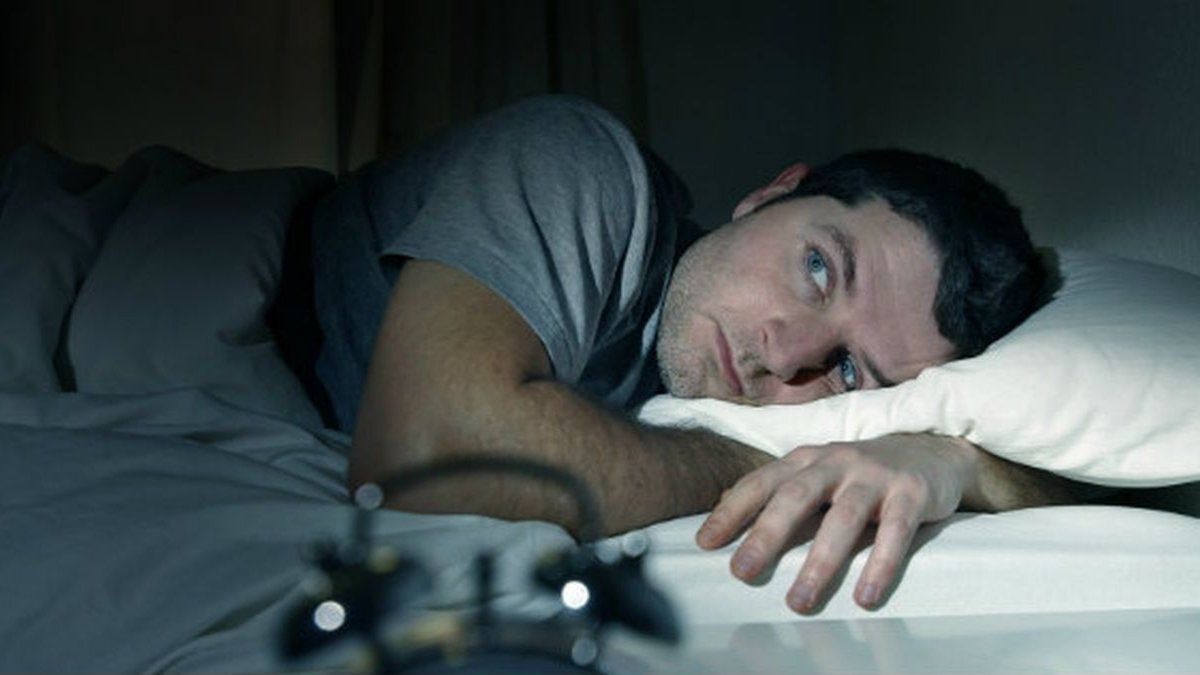Research carried out over the years has shown that Sleeping poorly has negative effects such as mood changes, lower academic and work performanceincreased risk of developing cardiovascular pathologies and can increase body weight due to an imbalance in the brain processes of appetite regulation.
In order to get a restful sleep every night, Experts have detected 7 essential habits to have a better rest and have full energy during the day.
How to sleep better at night
Take sun
The circadian rhythm is a 24-hour cycle that is regulated by exposure to light and darkness that is responsible for keeping us awake during the day and telling the body when it is time to sleep. This is produced through the production of the famous sleep hormone: melatonin. At bedtime their amounts rise, and when we need to be attentive and productive they fall.
However, our lifestyle could be altering this cycle due to the lack of exposure to sunlight due to working at home and not in the office or the excess exposure to light from screens at night, which confuses the brain and makes it believe that it is day when it is night, or that it is night when it is day.
That’s why it’s important expose yourself to the sun, and make sure it is morning, since the evening light sets back our “biological clock”
A study in older adults found that 2 hours of daytime sunlight exposure increased the amount of sleep by 2 hours and sleep efficiency by 80%.
Home office employment.jpg
Avoid screens at night
While daytime light exposure is a benefit, studies show that being exposed to blue light at night has the opposite effect. Blue light is any light that comes from screens, whether from a smartphone, computer, tablet or TV.
This is due to the same thing as the previous point: the circadian rhythm. The light from electronic devices tricks the brain into thinking it is still daytimereducing the production of melatonin, a hormone necessary for us to sleep deeply.
In order to sleep better at night, it is recommended to stop exposing yourself to bright lights at least 2 hours before going to bed, since we must also take into account that the information we find on social networks can work as a stimulant that They limit the relaxation necessary to fall asleep.
However, for many people it is difficult to sleep without first using a screen. For this alternative, it is recommended to use blue light blocking glasses or install a blue light blocking app on your smartphone.
Create a relaxation routine before bed
Following a relaxing bedtime routine can help signal to your body that it’s time to wind down for the night. For example, taking a hot bath, reading a book, stretching, or meditating.
Avoid working or using your cell phone in bed, since the ideal is for your mind to associate your bed only with sleep. You can also use an earplug or an eye mask to generate a state of optimal silence and darkness.
It is also very important to stop intrusive thoughts, since the mind has a tendency to get caught up in thoughts at bedtime, when we suddenly stop and become still. Meditation allows us to leave the day behind so we can rest our mind and body.
meditate.jpg

freepik
Avoid certain drinks.
At dinner time it is important not to eat too late or too abundant, ideally two hours before going to sleep and avoiding heavy or overly sugary foods. Nor would it be going to the other extreme and eating little, since hunger could make you wake up. Like everything: it is important to find balance.
The consumption of caffeine, nicotine and alcohol should be avoided at all costs, specifically before going to sleep.
- Caffeine: Not only does it inhibit the ability to fall asleep but it also encourages us to wake up in the middle of the night, complicating the deep sleep necessary for a good rest. When craving a cup of coffee at the end of the afternoon or at night, it is important to make sure it is decaffeinated.
- Nicotine: It is a stimulant. In 2008, a group of researchers found that smokers were four times more likely to wake up in the middle of the night and wake up feeling tired.
- Alcohol: Although it may seem that a drink helps you fall asleep, the reality is that alcohol is a dehydrating agent that often disrupts sleep later in the night.
Maintain fixed hours
Studies show that Regularizing your sleep schedules helps regulate the circadian rhythm.
Always going to bed and getting up at the same time every day, even on weekends, helps your body’s memory. After several weeks, the alarm may not even be necessary.
Avoid nap
While short naps are beneficial, Long or irregular breaks during the day can negatively affect your sleepespecially in adolescents.
It is recommended that the nap should not last more than 30 minutes nor should it be in the late afternoon.
Instead, you can use that time to be more productive and try to sleep earlier at night.
Control exercise schedules
Exercise has a stimulating effect that increases alertness and hormones such as epinephrine and adrenaline. That’s why It is recommended not to train too close to bedtimesince this can generate too much energy to fall asleep.
Exercising is a great way to relieve stress and improve sleep, as long as it’s at least three hours before bed.
One study in older adults found that exercise performed several hours before bedtime nearly halved the amount of time needed to fall asleep and provided 41 more minutes of sleep per night.
Source: Ambito
I am an author and journalist who has worked in the entertainment industry for over a decade. I currently work as a news editor at a major news website, and my focus is on covering the latest trends in entertainment. I also write occasional pieces for other outlets, and have authored two books about the entertainment industry.




